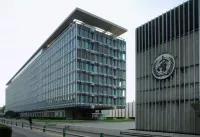Niger is a landlocked country in West Africa, bordered by seven other nations. With a land area of nearly 1.27 million km2, it is the largest landlocked country in West Africa. The Sahara Desert covers over 80% of its territory. The population of approximately 25 million is predominantly Muslim, concentrated in the southern and western regions. Niamey, the capital city, is situated in the southwest, along the Niger River.
1900: Coordination of three French expeditions
In 1899–1900, France coordinated three expeditions to link France's African possessions, meeting at Kousséri and defeating Rabih az-Zubayr's forces at the Battle of Kousséri.
1903: Fall of the Sokoto Caliphate
In 1903, the Sokoto Caliphate, fatally weakened by invasions, fell to the British, and its lands were later partitioned between Britain and France.
December 1904: Creation of the Military Territory of Niger
In December 1904, the Military Territory of Niger was created within the Upper Senegal and Niger colony, with its capital at Niamey.
December 1905: Start of the Karma revolt
In December 1905, the Karma revolt began in the Niger valley, led by Oumarou Karma.
March 1906: End of the Karma revolt
In March 1906, the Karma revolt in the Niger valley, led by Oumarou Karma, was suppressed.
1906: Border agreement with Nigeria
In the period between 1898 and 1906, a rough delimitation of the border between the Military Territory of Niger and Nigeria had already been agreed upon via treaties.
1910: Finalization of the border with Nigeria
In 1910, the border between the Military Territory of Niger and Britain's colony of Nigeria to the south was finalized.
1912: Capital moved to Zinder
In 1912, the capital of the Military Territory of Niger was moved to Zinder when the territory was split off from Upper Senegal and Niger.
1913: Famine and measures for food security
In 1913, measures to improve food security following a series of devastating famines were introduced.
1916: Start of the Kaocen revolt
In 1916–1917, the Kaocen revolt began, led by Ag Mohammed Wau Teguidda Kaocen, with backing from the Senussi in Fezzan.
1917: End of the Kaocen revolt
In 1916–1917, the Kaocen revolt, led by Ag Mohammed Wau Teguidda Kaocen, was violently suppressed and Kaocen fled to Fezzan.
1920: Famine and measures for food security
In 1920, measures to improve food security following a series of devastating famines were introduced.
1922: Niger becomes a distinct colony
In 1922, Niger became a distinct colony as part of French West Africa during the Scramble for Africa.
1922: Niamey becomes capital, Niger a colony
In 1922, the capital of the Military Territory of Niger was moved back to Niamey when Niger became a fully fledged colony within French West Africa.
1926: Territorial adjustments - west of Niger river
In 1926–1927, the areas west of the Niger river were attached to Niger.
1927: Territorial adjustments - west of Niger river
In 1926–1927, the areas west of the Niger river were attached to Niger.
1931: Famine and measures for food security
In 1931, measures to improve food security following a series of devastating famines were introduced.
1931: Transfer of the Tibesti Mountains
In 1931, the Tibesti Mountains were transferred from Niger to Chad.
1932: Dissolution of Upper Volta and addition to Niger
In 1932–1947, during the dissolution of Upper Volta (modern Burkina Faso), most of the east of that territory was added to Niger.
1946: Start of the French Union
From 1946 to 1958, the French Union conferred a limited form of French citizenship on the inhabitants of the colonies.
1947: Dissolution of Upper Volta and addition to Niger
In 1932–1947, during the dissolution of Upper Volta (modern Burkina Faso), most of the east of that territory was added to Niger.
July 1956: Overseas Reform Act (Loi Cadre)
In July 1956, the Overseas Reform Act (Loi Cadre) was enacted.
December 1958: Creation of the autonomous Republic of Niger
On December 18, 1958, an autonomous Republic of Niger was officially created under the leadership of Hamani Diori.
1959: Banning of the MSA
In 1959, the Mouvement Socialiste Africain-Sawaba (MSA) was banned for its perceived excessive anti-French stance.
July 1960: Niger decides to leave the French Community
On July 11, 1960, Niger decided to leave the French Community.
August 1960: Niger acquires full independence
On August 3, 1960, Niger acquired full independence and Hamani Diori became the first president of the country.
1963: Planned coup against Diori
In 1963, Hamani Diori survived a planned coup.
1964: Abortive rebellion launched
In 1964, Djibo Bakary's MSA-Sawaba group launched an abortive rebellion.
1965: Assassination attempt on Diori
In 1965, Hamani Diori survived an assassination attempt masterminded by Djibo Bakary's MSA-Sawaba group.
1975: Thwarted coup attempt
In 1975, there was a thwarted coup attempt in Niger.
1976: Thwarted coup attempt
In 1976, there was a thwarted coup attempt in Niger.
1980: Served on UN Security Council
In 1980, Niger served on the UN Security Council.
1983: Farmer-managed natural regeneration
Since 1983, farmer-managed natural regeneration has been practiced to increase food and timber production.
1984: Thwarted coup attempt
In 1984, there was a thwarted coup attempt in Niger.
1985: Tuareg revolt in Tchintabaraden
In 1985, a Tuareg revolt in Tchintabaraden was suppressed.
November 1987: Death of Kountché
In November 1987, Kountché died from a brain tumor and was succeeded by his chief of staff, Col. Ali Saibou.
1987: Death of Seyni Kountché
In 1987, Seyni Kountché died, and his chief of staff, Col. Ali Saibou, succeeded him.
December 1989: Saibou wins presidential election
On December 10, 1989, General Saibou became the first president of the Second Republic after winning the presidential election.
February 1990: Violently repressed student march in Niamey
On February 9, 1990, a violently repressed student march in Niamey led to the death of three students, which led to increased national and international pressure for further democratic reform.
November 1991: Installation of transitional government
In November 1991, a transitional government was installed to manage the affairs of state until the institutions of the Third Republic were put into place, following recommendations from the National Sovereign Conference.
April 1995: Peace deal with Tuareg rebels
In April 1995, the Nigerien government signed a peace deal with a Tuareg rebel group, agreeing to integrate some former rebels into the military and assist others in returning to civilian life with French assistance.
January 1996: Military coup led by Col. Ibrahim Baré Maïnassara
On 27 January 1996, Col. Ibrahim Baré Maïnassara led a coup that deposed President Ousmane, ending the Third Republic, due to governmental paralysis.
May 1996: Adoption of new constitution
In May 1996, a new constitution was drafted and adopted during a six-month transition period led by the Conseil de Salut National (National Salvation Council).
July 1996: Maïnassara wins presidential election
On 8 July 1996, Maïnassara won the presidential election as an independent candidate, although the elections were viewed as irregular by some.
April 1999: Assassination of President Maïnassara
On 9 April 1999, President Maïnassara was assassinated at Niamey Airport in unknown circumstances.
August 1999: Adoption of new constitution
On 9 August 1999, a constitution with a French-style semi-presidential system was adopted.
November 1999: President Tandja Mamadou wins election
In November 1999, President Tandja Mamadou won the election.
December 1999: Tandja Mamadou sworn into office
On 22 December 1999, President Tandja Mamadou was sworn into office as the first president of the Fifth Republic.
August 2002: Unrest in military camps
In August 2002, unrest occurred within military camps in Niamey, Diffa, and Nguigmi, but the government restored order within days.
July 2004: Municipal elections and re-election of Mamadou
On 24 July 2004, municipal elections were held, followed by presidential elections in which Mamadou was re-elected for a second term.
2005: Resolution of border dispute with Benin
In 2005, the border dispute with Benin was resolved by the International Court of Justice in Niger's advantage.
June 2007: Replacement of Prime Minister
In June 2007, Seyni Oumarou replaced Hama Amadou as prime minister following a successful vote of no confidence at the Assembly.
2007: Outbreak of Second Tuareg Rebellion
In 2007, the Second Tuareg Rebellion broke out in northern Niger, led by the Mouvement des Nigériens pour la justice (MNJ).
2009: End of Second Tuareg Rebellion
By 2009, the Second Tuareg Rebellion had "largely fizzled out inconclusively".
2009: Constitutional referendum and political unrest
In 2009, President Tandja Mamadou organized a constitutional referendum seeking to extend his presidency, leading to political and social unrest after adopting a new constitution.
February 2010: Military coup led by Salou Djibo
In February 2010, a military junta led by Salou Djibo was established in a coup d'état in response to President Tandja's attempted extension of his political term.
October 2010: Approval of new constitution
On 31 October 2010, Niger's new constitution was approved, restoring the semi-presidential system of government of the 1999 constitution.
2010: Enactment of the seventh constitution
In 2010, Niger's seventh and most recent constitution was enacted, establishing a multiparty, unitary semi-presidential system.
2011: Mahamadou Issoufou elected president and attempted coup
In 2011, Mahamadou Issoufou was elected as the first president of the Seventh Republic, and an attempted coup against him was thwarted.
2011: Transition plan and elections
In 2011, the Supreme Council for the Restoration of Democracy carried out a one-year transition plan, drafted a constitution and held elections.
2016: Issoufou re-elected
In 2016, Mahamadou Issoufou was re-elected as president.
December 2019: Attack on military post in Inates
On 10 December 2019, a large group of fighters belonging to the Islamic State in the Greater Sahara (IS-GS) attacked a military post in Inates, resulting in over seventy soldiers killed and others kidnapped.
January 2020: Attack on military base at Chinagodrar
On 9 January 2020, a large group of IS-GS militants assaulted a Nigerien military base at Chinagodrar, killing at least 89 Nigerien soldiers.
December 2020: Presidential elections
On 27 December 2020, Nigeriens went to the polls for presidential elections after Issoufou announced he would step down.
February 2021: Run-off election
On 20 February 2021, a run-off election was held, with Mohamed Bazoum taking 55.75% of the vote.
March 2021: IS-GS attacks around Tillia
On 21 March 2021, the IS-GS militants attacked several villages around Tillia, resulting in 141 deaths, mostly civilians.
March 2021: Attempted coup thwarted
On 31 March 2021, Niger's security forces thwarted an attempted coup by a military unit in the capital, Niamey.
April 2021: Bazoum sworn in as President
On 2 April 2021, Bazoum was sworn in as the President of Niger.
July 2023: Military coup overthrows Bazoum
Late on 26 July 2023, a coup by the military overthrew Bazoum, ending the Seventh Republic. On 28 July, General Abdourahamane Tchiani was proclaimed as the de facto head of state.
November 2023: Formation of the Alliance of Sahel States
In November 2023, the coup-led governments of Mali, Burkina Faso, and Niger formed the Alliance of Sahel States in opposition to potential military intervention.
2023: UN's MPI report indicates Niger's poverty
According to the UN's Multidimensional Poverty Index (MPI) report of 2023, Niger is one of the poorest countries in the world.
2023: Military junta in power
Following the coup in 2023, Niger has been ruled by the National Council for the Safeguard of the Homeland, a military junta.
February 2024: Easing of ECOWAS sanctions and resumption of electricity exports
On 24 February 2024, several ECOWAS sanctions against Niger were dropped, and Nigeria agreed to resume electricity exports to Niger.
March 2024: Military Cooperation Agreement Broken Off
In March 2024, Niger's government announced that it was breaking off "with immediate effect" its military cooperation agreement with the United States.
April 2024: Arrival of Russian military trainers and withdrawal of U.S. troops
In April 2024, Russian military trainers and equipment began to arrive in Niger under a new military agreement, and the U.S. agreed to withdraw troops from Niger following the termination of a Niger–U.S. agreement.
2024: Global Innovation Index Ranking
In 2024, Niger was ranked 137th in the Global Innovation Index.
June 2025: Military Leaders Plan Control of Somaïr
In June 2025, it was reported that Niger's military leaders plan to take control of Somaïr, a uranium company mostly owned by France, accusing the company of "irresponsible acts."
2025: Hausa replaces French as official language
In 2025, Hausa replaced French as the official language of Niger.
2025: Eradication of Onchocerciasis
In 2025, Niger became the first African country and the fifth country worldwide to eradicate onchocerciasis, according to the World Health Organization.
Mentioned in this timeline
Nigeria is a West African nation the most populous in...
Africa is the second-largest and second-most populous continent comprising of...

The World Health Organization WHO is a specialized agency of...
France officially the French Republic is primarily located in Western...

Justice in its broadest sense is the concept of treating...

A constitution serves as the foundational legal document for any...
Trending

45 minutes ago Elina Svitolina defeats Coco Gauff, faces Jessica Pegula in Dubai final.

46 minutes ago Dusty May on Naismith Watch List: Coach of the Year Potential?
46 minutes ago James Milner Breaks Premier League Appearance Record: Klopp Praises His Impact

2 hours ago Team Homan’s Olympic Curling Journey: Semifinal Setbacks and Future Games

3 hours ago Dorothea Wierer at Olympia 2026: Focus on Biathlon Massenstart and Preuß's Last Race.
3 hours ago Juventus vs Como: Preview, Predictions, and Spalletti's Demand for Serie A Reaction
Popular

Jesse Jackson is an American civil rights activist politician and...
Randall Adam Fine is an American politician a Republican who...

Ken Paxton is an American politician and lawyer serving as...

Barack Obama the th U S President - was the...

Bernie Sanders is a prominent American politician currently serving as...
WWE Raw a professional wrestling television program by WWE airs...